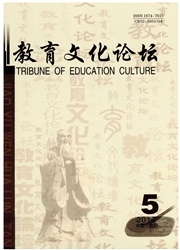

 中文摘要:
中文摘要:
“名”与“相”之关系是《楞伽经》重要讨论的话题之一,名是用来对相进行描述与说明的.然而名对于无形无相、超越语言之法身是无法道说的.西方现代哲学转向之后,似乎将语言提高到了终极存在的位置,语言成了存在之家,但这时的语言只是借用了语言之名,海德格尔的大道语言——道说已经俨然是道本身了.苗族古经歌唱禁忌是苗族人对神的最高体悟.禁忌是非言的,是静寂的另称.佛教、西方哲学与苗族智慧虽然各自的文化表达形式有所差异,但在语言的局限性上却有大体相同的认识.
 英文摘要:
英文摘要:
The relationslaip between " nomination" and "phase" are one of the important topics of Lankavatara Sutra, of which the former is used to depict and illustrate the latter. However, such a dichotomy can hardly cover what is beyond nomination phase or language. With the new turn in western philosophy, language seems to have been elevated to the height of maximum, which means it is a home of existence, rather than a designation. Yet, the lan- guage in this context is none but a designation, on the contrary, the Ereignis of Heidegger - sage has been the way itself. The taboos on the chanting of Hmong ancient sutra are Hmong profound perception of the deity. The taboo is the other name of non - language and silence. The cultural expressions of Buddhism, western philosophy and Hmong wisdom are different, but they are almost the same in terms of language limitation.
 同期刊论文项目
同期刊论文项目
 同项目期刊论文
同项目期刊论文
 期刊信息
期刊信息
